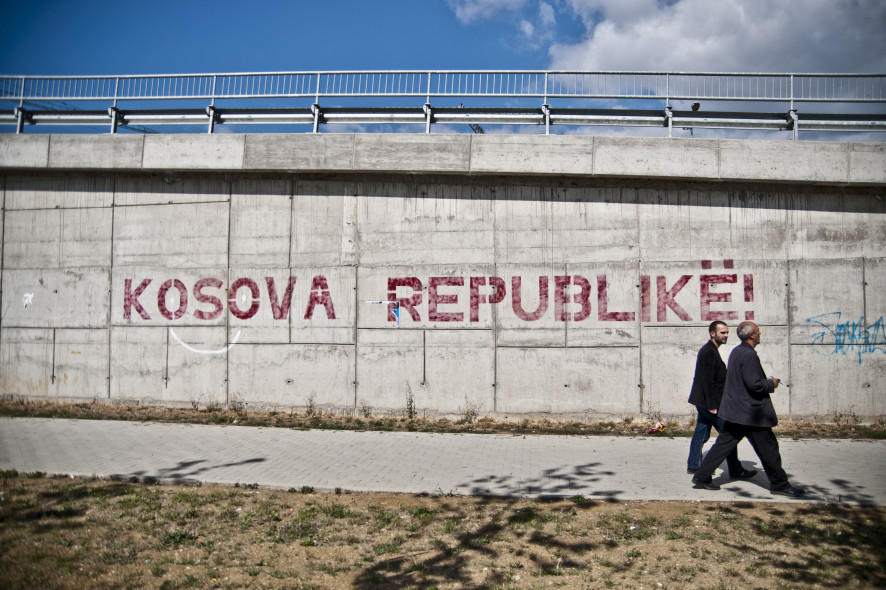by Fabien Segnarbieux
Inheriting decades of Yugoslav non-alignment policy, Serbia is trying to follow a neutral diplomacy that satisfies its two biggest partners: The European Union and the Federation of Russia – but for how much longer? Indeed, this balance is endangered by the conflict in Ukraine that may force Serbia to take a side.
Despite being an official candidate country for EU accession, Serbia has refused to join European sanctions against Russia. The reason resides in the “special relationship” existing between Serbia and its Russian older brother. Before becoming an EU member state, Serbia still has a long way to go and questions are raised concerning the viability of such a diplomacy. Serbia is sitting between two chairs at the same time.
Based on a shared culture linked to orthodox Christianity, Russia and Serbia have been allies for several centuries. Already during the times of Ottoman rule on the Balkans, Russia´s stance was clear – the defence of Orthodox Christianity in the region. Beyond this humanist principle however, there was also a geopolitical incentive: maintaining a double pressure on the Ottoman Empire. Firstly by defending Orthodox Christians and fuelling the opposition, and secondly by frequently waging wars to destabilize Ottoman borders and to get direct access to the Mediterranean Sea.
In these ways, Russian diplomacy held a key influence in the foundation of a Serbian state. It freed Serbia from the Ottoman rule in the 1830s, before allowing the establishment of a modern state of Serbia after the Russo-Turkish war of 1877-1878.
More recently, Russia condemned the NATO bombing of Yugoslavia during the Kosovo war and does still not recognize Kosovo’s independence. Furthermore, a free trade agreement between both states has been in effect since 2000, and Russia frequently backs up Serbian economy by allowing loans with low interest rates.
Thus, ties between the two states are strong and important; Serbia needs Russia and its support on many sensitive issues such as the Kosovo, whereas Serbia remains the main ally of Russia in the Balkans. Without overestimating the importance of this relation, there exists a special relationship and one should know that any EU integration process will be confronted to that situation de facto.
Likewise, the European Union has always been the main economic partner of Serbia. Today, almost 90% of all Serbian exports go to Europe; joining the EU is thus a key national interest of Serbia. On the other hand, having Serbia as a member state is a key step for achieving and maintaining pacified Balkans, and would spread EU influence further across the region.
A clear « ménage à trois » is happening currently, and it is in each actor’s interest to achieve a « Russia friendly » integration of Serbia within the European Union. However, all the events happening in Ukraine are not only endangering that trio but making it more and more difficult to maintain.
Firstly, Crimea’s annexation raised concerns in the Serbian camp because it was a strong reminder of the Kosovo issue. What made things worse, Putin directly mentioned Kosovo as a « precedent » that led to Crimea. Consequently, Serbia was concerned by this; it could affect Russian support for the Serbian position on Kosovo, and help legitimize Kosovo’s independence.
Secondly, the EU voted in favour of sanctions against Russia and officially asked Serbia to join them. Unfortunately, European officials had underestimated a cold fact: it is hard to ask a country to back up sanctions if it has endured them itself in the past. If we add the fact it would have been against their Russian « brothers », we can deem this request either risk-taking or ideological, but in every way inconsiderat.
Finally, the cancellation of the South Stream project has economically harmed Serbia and has scrapped the energy cooperation with Russia. Serbian PM Alexandar Vucic clearly stated that “Serbia has been investing in this project for seven years, but now it has to pay the price of a clash between the great [powers].”
But what if the decision-makers where from the grass-roots level, the citizens of Serbia? In late 2013, Nova srpska politička misao had carried out a survey regarding EU integration and cooperation with Russia, and the results may raise concerns over Serbians’ real willingness to join the EU:
“70 percent of the Serbian population favour close relations with Russia, while 50 percent support Serbia’s accession to the European Union. Only 30 percent see a contradiction in this, declaring that they decidedly support close relations with Russia instead of joining the EU”
In the end, although Serbia is “caught between two chairs”, the best solution would be to maintain the situation. However, the real question is whether this is actually a realistic goal? An alternative solution would be to put the question of foreign policy harmonization aside for a while. Unfortunately, this is unlikely to happen.
Indeed, the first draft of a resolution on Serbia prepared by European Parliament reporter David McAllister has leaked and was clear: “We invite Serbia to align its foreign and security policy with the EU’s, including the part referring to Russia, with a regret that Serbia did not join restrictive measures [imposed] on Russia.”





I enjoy what you guys tend to be up too. This kind of clever work and exposure! Keep up the fantastic works guys I’ve included you
I’ll immediately take hold of your rss as I can’t to find your e-mail subscription hyperlink or e-newsletter service. Do you’ve any? Please permit me realize in order that I may just subscribe. Thanks.
We don’t have any newsletter yet, but if we see that the demand is there, we might start it.